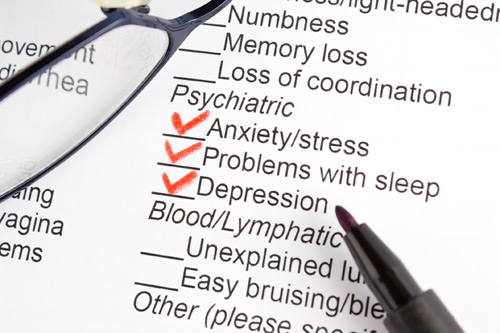
While the two are separate mental health conditions, they have some overlapping characteristics. And one person can suffer from both at the same time.
Understanding these two common mental health conditions is important in recognizing, treating, managing, and supporting you or someone you love who suffers from depression and/or anxiety.
What Is Depression?
The leading cause of disability worldwide according to the World Health Organization (WHO), depression impacts how a person thinks, feels and behaves.
“Depression is different from usual mood fluctuations and short-lived emotional responses to challenges in everyday life,” writes WHO on its website. “Especially when long-lasting and with moderate or severe intensity, depression may become a serious health condition. It can cause the affected person to suffer greatly and function poorly at work, at school and in the family. At its worst, depression can lead to suicide.”
The Difference Between Sadness and Depression

While depression shares some characteristics with grief and sadness, they are not the same. According to American Psychiatric Association, people experiencing grief will feel overwhelming sad feelings typically in waves and self-esteem is usually maintained. However, with major depressive disorder (MDD), the painful emotions tend to persist without much relief and are often paired with feelings of worthlessness and self-loathing.
However, it is important to note that grief can trigger depression, which is a serious mental health condition that requires medical care.
The Difference Between Anxiety and Depression
The National Alliance on Mental Illness (NAMI) reports that 60% of people with anxiety also have depression. Recent research published in JAMA Psychiatry revealed that people with depression and anxiety both have the same abnormally low levels of activity in the areas of the brain that help regulate emotional and cognitive control.
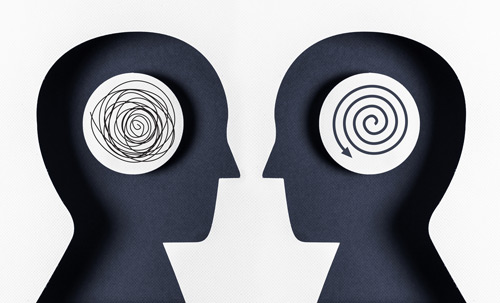
“People with depression move slowly, and their reactions can seem flattened or dulled. People with anxiety tend to be more keyed up, as they struggle to manage their racing thoughts,” according to Psycom. “Depressed people who do not have anxiety are less likely to be fraught with worry about future events, as they are often resigned to believing that things will continue to be bad. In other words, they may predict the future based on how they feel in the moment.”
Symptoms and Signs of Depression
Depressive symptoms vary depending upon the person. Some depressed people experience only a few symptoms while others experience many. For a depression diagnosis, a person usually has experienced several symptoms persistently for at least two weeks.
The following list of common symptoms from the National Institute of Mental Health (NIMH) may be present in someone suffering from depression:
- “Persistent sad, anxious, or ‘empty’ mood
- Feelings of hopelessness, or pessimism
- Irritability
- Feelings of guilt, worthlessness, or helplessness
- Loss of interest or pleasure in hobbies or activities
- Decreased energy or fatigue
- Moving or talking more slowly
- Feeling restless or having trouble sitting still
- Difficulty concentrating, remembering or making decisions
- Difficulty sleeping, early-morning awakening, or oversleeping
- Appetite and/or weight changes
- Thoughts of death or suicide or suicide attempts
- Aches or pains, headaches, cramps, or digestive problems without a clear physical cause and/or that do not ease even with treatment”
A patient who has taken the GeneSight test, Doreen, describes her depression like this: “It was like a cloud happened in my head. I would cry, I didn’t want to eat, and didn’t want to have a thing to do with anyone.”
Like depression, anxiety can be brought on by stressors like medical illness, pain, or relationship issues. Additionally, while many people may feel anxious before a situation where they need to perform (like a big test, a presentation at work, public speaking, etc.), the persistence of these feelings over a longer period of time may signify an anxiety disorder.
NIMH reports that common symptoms of anxiety could include:
- “Feeling restless, wound-up, or on-edge
- Being easily fatigued
- Having difficulty concentrating; mind going blank
- Being irritable
- Having muscle tension
- Difficulty controlling feelings of worry
- Having sleep problems, such as difficulty falling asleep or staying asleep, restlessness, or unsatisfying sleep”
“People with generalized anxiety disorder (GAD) display excessive anxiety or worry, most days for at least 6 months, about a number of things such as personal health, work, social interactions, and everyday routine life circumstances,” according to NIMH. “The fear and anxiety can cause significant problems in areas of their life, such as social interactions, school, and work.”
What are the Causes of Depression and Anxiety?
While more research is being done, many scientists believe that depression and anxiety do not have a single cause. These conditions could result from a complex interaction of social, psychological and biological factors.
According to NAMI, depression may be triggered by a number of factors, but it can also occur spontaneously. Some possible factors may include trauma, genetics, life circumstances, other medical conditions or drug/alcohol misuse. NAMI reports that imaging studies “have shown that the frontal lobe of the brain becomes less active when a person is depressed.” Further, NAMI suggests depression is also associated with “changes in how the pituitary gland and the hypothalamus respond to hormone stimulation.”
Likewise, scientists believe that several factors combine to cause anxiety disorders. Anxiety disorders often run in families, which suggests genetics can play a role. Life events can also trigger anxiety disorder; for example, a traumatic event can play a role in developing anxiety disorder.
 Depression Diagnosis and Treatment
Depression Diagnosis and Treatment
If you (or the person you are caring for) experience depressive symptoms for at least two weeks and it impacts your (or your loved one’s) ability to complete and happily engage in daily activities, you may want to consider consulting a healthcare professional or a mental health professional, such as a psychiatrist or psychologist.
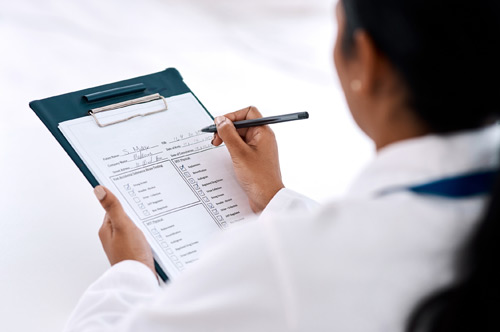
The doctor or nurse practitioner may ask you to take a depression diagnostic test, like the Hamilton Rating Scale for Depression-17 (HAMD-17). This 17-question test generally takes 20 minutes to complete and asks you to rate the severity of your depression based on questions like:
- Do you have a depressed mood (e.g., sadness, hopeless, helpless, etc.)?
- Do you experience feelings of guilt?
- Do you have thoughts of suicide?
- Do you have insomnia early in the night? In the middle of the night? Early hours of the morning?
- Do you have trouble working?
If diagnosed with depression, the provider will likely suggest a treatment plan that could include a variety of different therapies – including medications, talk therapy, or a combination of the two.
“If these treatments do not reduce symptoms, electroconvulsive therapy (ECT) and other brain stimulation therapies may be options to explore,” writes the NIMH on its site. “No two people are affected the same way by depression and there is no ‘one-size-fits-all’ for treatment. It may take some trial and error to find the treatment that works best for you.”
Supporting Depressed Loved Ones
Depression reaches far and wide and can impact an individual’s life in many, many ways. In addition to affecting careers, sex lives, physical and emotional health, it can also deeply impact the people who love them.
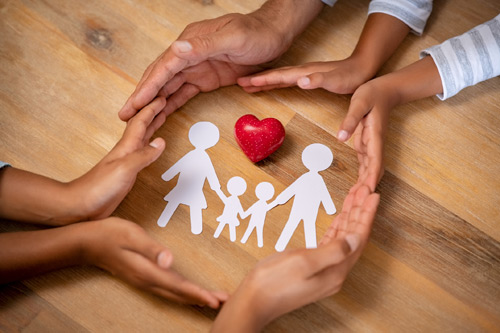
If your loved one seems to be suffering from depression, the Mayo Clinic offers some suggestions for how you may be able to help:
- Start a conversation with your loved one about your concerns
- “Explain that depression is a medical condition, not a personal flaw or weakness — and that it usually gets better with treatment”
- Find a medical doctor or a mental health provider and encourage your loved one to schedule an appointment; you may want to offer to help create a list of questions and offer to accompany them
Caring for Yourself While Supporting Loved Ones with Depression and Anxiety
Supporting a loved one who is suffering from depression can be challenging. You should consider equipping yourself with knowledge, understanding and insight into your depressed loved one. Importantly, you must take care of yourself while helping someone you love.
“Family, friends, spouses, children, and significant others are greatly influenced by their loved one’s depression. They too carry the burden of depression,” writes Dan Bates, LMHC, MAML in Psychology Today. “Taking care of or living with someone who is suffering from depression can be emotionally taxing. It is not selfish for you to take care of yourself.”
He suggests that maintaining a regular schedule, adjusting your expectation and maintaining hope are key things you can to do to help your loved one with depression.
Does Depression and Anxiety Look the Same in Everyone?
The short answer to the question is no. Even with a long list of potential symptoms, no two people suffer from depression and anxiety in the exact same way.
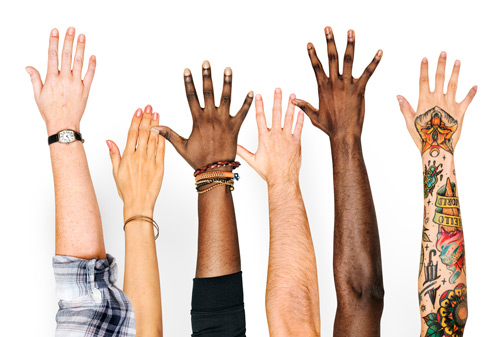
For example, the Mayo Clinic reports that women are twice as likely to be diagnosed with depression, which could be associated with hormonal changes, “other biological factors, inherited traits, and personal life circumstances and experiences.” Men may not have words to describe their depression but may say they have sleep problems, exhibit reckless behavior, and sometimes lash out in anger.
Older adults may report different symptoms to their doctors, including cognitive problems, loss of interest in activities, loss of concentration, nagging aches and pains, and digestive problems.
Then there are those who face additional challenges when seeking treatment. For example, due to stigma, many people in minority/BIPOC communities and LGBTQ communities may resist showing their emotional struggles to others and therefore may suffer silently.
And children, teens, and college aged young adults may express their emotions differently than adults and therefore, may present symptoms of depression differently than adults.
The most important thing to remember is that depression and anxiety are treatable. Please, ask for help. For more information about depression please visit our blog at https://genesight.com/blog/.
Our articles are for informational purposes only and are reviewed by our Medical Information team, which includes PharmDs, MDs, and PhDs. Do not make any changes to your current medications or dosing without consulting your healthcare provider.
The GeneSight test must be ordered by and used only in consultation with a healthcare provider who can prescribe medications. As with all genetic tests, the GeneSight test results have limitations and do not constitute medical advice. The test results are designed to be just one part of a larger, complete patient assessment, which would include proper diagnosis and consideration of your medical history, other medications you may be taking, your family history, and other factors.
If you are a healthcare provider and interested in learning more about the GeneSight test, please contact us at 855.891.9415. If you are a patient, please talk with your doctor to see if the GeneSight test may be helpful.


